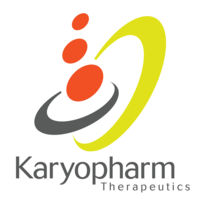预约演示
更新于:2025-08-30

Antengene Corporation Co., Ltd.
更新于:2025-08-30
概览
标签
肿瘤
血液及淋巴系统疾病
免疫系统疾病
双特异性T细胞结合器
小分子化药
单克隆抗体
疾病领域得分
一眼洞穿机构专注的疾病领域
暂无数据
技术平台
公司药物应用最多的技术
暂无数据
靶点
公司最常开发的靶点
暂无数据
| 排名前五的药物类型 | 数量 |
|---|---|
| 小分子化药 | 5 |
| 双特异性T细胞结合器 | 4 |
| 单克隆抗体 | 3 |
| 化学药 | 1 |
| 抗体偶联核素 | 1 |
关联
14
项与 德琪(浙江)医药科技有限公司 相关的药物作用机制 ACADS inhibitors [+1] |
非在研适应症 |
最高研发阶段批准上市 |
首次获批国家/地区 美国 |
首次获批日期2019-07-03 |
作用机制 CD3刺激剂 [+1] |
在研机构 |
原研机构 |
非在研适应症- |
最高研发阶段临床前 |
首次获批国家/地区- |
首次获批日期- |
作用机制 CD3刺激剂 [+1] |
在研机构 |
原研机构 |
非在研适应症- |
最高研发阶段临床前 |
首次获批国家/地区- |
首次获批日期- |
100 项与 德琪(浙江)医药科技有限公司 相关的临床结果
登录后查看更多信息
0 项与 德琪(浙江)医药科技有限公司 相关的专利(医药)
登录后查看更多信息
12
项与 德琪(浙江)医药科技有限公司 相关的新闻(医药)2024-06-17
·信狐药迅
本周药品注册受理数据,分门别类呈现,一目了然。(6.11-6.16)
新药上市申请
无
新药临床申请药品名称企业注册分类受理号注射用莱古比星上海亲合力生物医药科技股份有限公司1CXHL2400594注射用莱古比星上海亲合力生物医药科技股份有限公司1CXHL2400593ATG-037上海德琪医药科技有限公司1CXHL2400592BGB-43395片百济神州(苏州)生物科技有限公司1CXHL2400591BGB-43395片百济神州(苏州)生物科技有限公司1CXHL2400590BGB-43395片百济神州(苏州)生物科技有限公司1CXHL2400589SY-7166片首药控股(北京)股份有限公司1CXHL2400587SY-7166片首药控股(北京)股份有限公司1CXHL2400586HP515片海创药业股份有限公司1CXHL2400585HP515片海创药业股份有限公司1CXHL2400584HP515片海创药业股份有限公司1CXHL2400583注射用美罗培南普莱巴坦齐鲁制药有限公司1CXHL2400600注射用美罗培南普莱巴坦齐鲁制药有限公司1CXHL2400599注射用美罗培南普莱巴坦齐鲁制药有限公司1CXHL2400598注射用美罗培南普莱巴坦齐鲁制药有限公司1CXHL2400597NCO-48F1片广东集宝医药技术有限公司1CXHL2400596NCO-48F1片广东集宝医药技术有限公司1CXHL2400595VV261片旺山旺水(上海)生物医药有限公司1CXHL2400604VV261片旺山旺水(上海)生物医药有限公司1CXHL2400603VV261片旺山旺水(上海)生物医药有限公司1CXHL2400602HZ029口崩片浙江和泽医药科技股份有限公司2.2CXHL2400601注射用西罗莫司(白蛋白结合型)石药集团中奇制药技术(石家庄)有限公司2.4CXHL2400588美洛昔康注射液浙江圣兆药物科技股份有限公司3CYHL2400107瑞卢戈利片北京海步医药科技有限公司3CYHL2400106硫酸亚铁缓释片吉林天衡药业有限公司3CYHL2400105氨磺必利注射液山西阳和医药技术有限公司3CYHL2400109氨磺必利注射液山西阳和医药技术有限公司3CYHL2400108氨磺必利注射液济南东方开元医药新技术有限公司3CYHL2400110瑞加诺生注射液珠海润都制药股份有限公司3CYHL2400112盐酸西替利嗪注射液中孚药业股份有限公司3CYHL2400111注射用RC88荣昌生物制药(烟台)股份有限公司1CXSL2400374注射用KJ103上海宝济药业股份有限公司1CXSL2400378注射用BB-1701百力司康生物医药(杭州)有限公司1CXSL2400377SYS6010石药集团巨石生物制药有限公司1CXSL2400376BC011抗体注射液宝船生物医药科技(上海)有限公司1CXSL2400375GQ1010注射液启德医药科技(苏州)有限公司1CXSL2400379注射用AMT-676普众发现医药科技(上海)有限公司1CXSL2400381人脐带间充质干细胞注射液杭州易文赛生物技术有限公司1CXSL2400380人GLP-1和FGF21双因子高表达脂肪干细胞注射液北京吉源生物科技有限公司1CXSL2400382SCTC21C注射液神州细胞工程有限公司1CXSL2400385SCT520FF注射液神州细胞工程有限公司1CXSL2400387BN-1001眼用注射液南京贝思奥生物科技有限公司1CXSL2400384BN-1001眼用注射液南京贝思奥生物科技有限公司1CXSL2400383SCT520FF注射液神州细胞工程有限公司1CXSL2400389SCT520FF注射液神州细胞工程有限公司1CXSL2400388GR1802注射液重庆智翔金泰生物制药股份有限公司1CXSL2400392GR1802注射液重庆智翔金泰生物制药股份有限公司1CXSL2400391SCTB41注射液神州细胞工程有限公司1CXSL2400390重组抗PD-1人源化单抗注射液复星汉霖(深圳)生物技术有限公司3.3CXSL2400386司美格鲁肽注射液惠升生物制药股份有限公司3.3CXSL2400394司美格鲁肽注射液惠升生物制药股份有限公司3.3CXSL2400393
仿制药申请药品名称企业注册分类受理号盐酸异丙嗪注射液扬州中宝药业股份有限公司3CYHS2401742地高辛注射液海南未见药业有限公司3CYHS2401746盐酸布比卡因注射液四川美大康华康药业有限公司3CYHS2401745注射用右雷佐生上海旭东海普药业有限公司3CYHS2401772琥珀酸亚铁片安徽佳和药业有限公司3CYHS2401771重酒石酸去甲肾上腺素注射液浙江博崤生物制药有限公司3CYHS2401769钠钾镁钙注射用浓溶液北京民康百草医药科技有限公司3CYHS2401763丁酸氯维地平注射用乳剂石药集团中诺药业(石家庄)有限公司3CYHS2401756丁酸氯维地平注射用乳剂石药集团中诺药业(石家庄)有限公司3CYHS2401755吸入用盐酸丙卡特罗溶液北京海步医药科技有限公司3CYHS2401753注射用青霉素钠西藏金岳医药有限公司3CYHS2401780注射用青霉素钠西藏金岳医药有限公司3CYHS2401779注射用青霉素钠西藏金岳医药有限公司3CYHS2401778吸入用盐酸丙卡特罗溶液山东如至生物医药科技有限公司3CYHS2401777硫酸阿米卡星注射液漯河市汇创医药有限公司3CYHS2401776硫酸阿米卡星注射液漯河市汇创医药有限公司3CYHS2401775硫酸镁注射液湖南恒生制药股份有限公司3CYHS2401790复方匹可硫酸钠颗粒石家庄四药有限公司3CYHS2401788洛索洛芬钠口服溶液广东万泰科创药业有限公司3CYHS2401787氨茶碱片石家庄四药有限公司3CYHS2401784注射用青霉素钠西藏金岳医药有限公司3CYHS2401782注射用青霉素钠西藏金岳医药有限公司3CYHS2401781头孢呋辛酯干混悬剂瑞阳制药股份有限公司3CYHS2401794头孢呋辛酯干混悬剂瑞阳制药股份有限公司3CYHS2401793法莫替丁注射液广州一品红制药有限公司3CYHS2401785维生素B6注射液南京思聆医药科技有限公司3CYHS2401798复方聚乙二醇电解质散(儿童型)亚宝药业集团股份有限公司3CYHS2401797盐酸昂丹司琼片成都通德药业有限公司3CYHS2401808米诺地尔搽剂贵州瑞和制药有限公司3CYHS2401807米诺地尔搽剂贵州瑞和制药有限公司3CYHS2401806复方聚乙二醇(3350)电解质散四川信拓医药技术有限公司3CYHS2401805司美格鲁肽注射液丽珠集团新北江制药股份有限公司3.3CXSS2400059司美格鲁肽注射液丽珠集团新北江制药股份有限公司3.3CXSS2400058司美格鲁肽注射液丽珠集团新北江制药股份有限公司3.3CXSS2400057低钙腹膜透析液(乳酸盐-G1.5%)海南爱科制药有限公司4CYHS2401741腹膜透析液(乳酸盐-G2.5%)海南爱科制药有限公司4CYHS2401751精氨酸布洛芬颗粒金鸿药业股份有限公司4CYHS2401750低钙腹膜透析液(乳酸盐-G2.5%)海南爱科制药有限公司4CYHS2401749沙库巴曲缬沙坦钠片湖南千金协力药业有限公司4CYHS2401748枸橼酸西地那非口腔崩解片北京星昊盈盛药业有限公司4CYHS2401747拉考沙胺注射液海南普利制药股份有限公司4CYHS2401744拉考沙胺注射液海南普利制药股份有限公司4CYHS2401743盐酸特比萘芬喷雾剂浙江高跖医药科技股份有限公司4CYHS2401770利丙双卡因乳膏浙江寰领医药科技有限公司4CYHS2401768溴莫尼定噻吗洛尔滴眼液立生医药(苏州)有限公司4CYHS2401767盐酸尼卡地平注射液浙江高跖医药科技股份有限公司4CYHS2401766二甲双胍恩格列净片(I)河南诺美药业有限公司4CYHS2401765盐酸纳呋拉啡口腔崩解片成都苑东生物制药股份有限公司4CYHS2401764苯磺酸氨氯地平片新乡市常乐制药有限责任公司4CYHS2401762西甲硅油乳剂海南斯达制药有限公司4CYHS2401761苯磺酸氨氯地平片新乡市常乐制药有限责任公司4CYHS2401760米格列奈钙片浙江易泽达医药科技有限公司4CYHS2401759米格列奈钙片浙江易泽达医药科技有限公司4CYHS2401758左卡尼汀注射液浙江普洛康裕制药有限公司4CYHS2401757腹膜透析液(乳酸盐-G1.5%)海南爱科制药有限公司4CYHS2401754精氨酸布洛芬颗粒金鸿药业股份有限公司4CYHS2401752布洛芬混悬液成都倍特得诺药业有限公司4CYHS2401774布洛芬混悬液成都倍特得诺药业有限公司4CYHS2401773西甲硅油乳剂浙江赛默制药有限公司4CYHS2401792比索洛尔氨氯地平片成都欣捷高新技术开发股份有限公司4CYHS2401791阿奇霉素干混悬剂江苏东科康德药业有限公司4CYHS2401789注射用盐酸万古霉素华北制药股份有限公司4CYHS2401786铝碳酸镁咀嚼片河南优凯制药有限公司4CYHS2401783盐酸阿莫罗芬搽剂湖南及正医药科技有限公司4CYHS2401804卡铂注射液中寰医药有限公司4CYHS2401803氨甲环酸注射液浙江兄弟药业有限公司4CYHS2401802二甲双胍维格列汀片(Ⅱ)悦康药业集团股份有限公司4CYHS2401801他克莫司胶囊江苏和晨药业有限公司4CYHS2401800他克莫司胶囊江苏和晨药业有限公司4CYHS2401799富马酸比索洛尔片四川依科制药有限公司4CYHS2401796富马酸比索洛尔片四川依科制药有限公司4CYHS2401795
进口申请药品名称企业注册分类受理号PF-06821497片Pfizer Inc.1JXHL2400133PF-06821497片Pfizer Inc.1JXHL2400132Ulixacaltamide缓释片Praxis Precision Medicines1JXHL2400136Ulixacaltamide缓释片Praxis Precision Medicines1JXHL2400135Ulixacaltamide缓释片Praxis Precision Medicines1JXHL2400134BAY 2927088片Bayer AG1JXHL2400140AZD9833片ASTRAZENECA AB1JXHL2400137Efgartigimod注射液argenx BV2.2JXSL2400113Capivasertib片AstraZeneca AB2.4JXHL2400139Capivasertib片AstraZeneca AB2.4JXHL2400138Futibatinib薄膜包衣片Taiho Oncology, Inc.5.1JXHL2400141左甲状腺素钠片Aristo Pharma GmbH5.2JYHS2400034
中药相关申请药品名称企业注册分类受理号柴黄利胆胶囊北京以岭药业有限公司1.1CXZS2400021五味消毒饮颗粒瑞阳制药股份有限公司3.1CXZS2400022参苓溃康颗粒北京盈科瑞创新医药股份有限公司1.1CXZL2400032益智安脑颗粒北京京师脑力科技有限公司1.1CXZL2400033
不包含原料药、医用氧、注射用水、氯化钠或葡萄糖注射液等申请,不包含再注册、一次性进口、技术转移、复审申请。
生物类似药临床1期申请上市
2024-03-21
·同写意
2024年3月30-31日第十届百奥赛图模式动物与医药产业大会将在江苏省南通市海门区召开。本次大会由百奥赛图和东布洲科学城共同主办。会议背景向上滑动查看会议背景会议将围绕 “XDC想象力不断”、“免疫系统的正反面-攻破肿瘤与自免”、“老龄化蓝海市场-神经与衰老”和“慢性疾病药物开发的机遇和挑战” 四个方向共话医药创新!本次大会将邀请来自学术界和企业界的专家学者齐聚海门,大会主办方将继续保持“会场无领导、无大拿、无特殊身份、不设名牌桌牌、自由选座、人人平等”的交流氛围,旨在为参会代表建立一个自由、高效的分享交流平台,进行深入、广泛的学术探讨。 山重水复疑无路,柳暗花明又一“春”。在此,百奥赛图诚挚邀请您的参与,期待与您相聚魅力海门!会议信息会议签到2024年3月29日 12:00-22:00(东恒盛国际大酒店一楼)2024年3月30日 08:00-17:50(海门区政府会展中心)会议主题医药创新 未来已来会议时间2024年3月30日 08:30-17:502024年3月31日 08:30-11:30会议地点海门区政府会议中心(江苏省南通市海门区北京中路600号)会议最终解释权归百奥赛图所有会议日程3月29日下午14:30-18:00 东布洲科学城交流活动(特邀制) 东布洲之约——长江之滨医药人沙龙3月30日上午08:30-08:50 大会开幕式开幕致辞 沈月雷:百奥赛图董事长兼总经理 徐 骏:南通市海门区政协副主席、临江新区党工委书记08:50-09:20 Identifying cell membrane protein targets for cancer immunotherapy 罗 敏:研究员 复旦大学生物医学研究院 09:20-09:50 生物制剂联合治疗自身免疫/炎症性疾病:临床前评估药物疗效和毒理面临的的挑战 占一帆:首席科学家,新药研发副总经理 上海华奥泰生物药业 09:50-10:20 补体靶向的药物研发 韩照中:创始人、董事长、CEO 领诺(上海)医药科技有限公司10:20-10:50 茶歇10:50-11:20 基于TCRm的药物研究进展 刘志刚:首席科学官 重庆智翔金泰生物制药股份有限公司11:20-11:50 新一代抗体类药物开发展望 徐汶新:董事副总经理/免疫学高级总监(Head of Immunology) 微诺迈博生物科技有限公司/贝达药业股份有限公司11:50-13:20 午餐及休息时间3月30日下午13:20-13:50 下一代mRNA编码蛋白免疫治疗和药物递送 徐 伟:CSO 剂泰医药13:50-14:20 基于QTsome的核酸药物递送系统研发及临床转化 李剑光:首席科学家 浙江海昶生物医药技术有限公司14:20-14:50 RenNano和RenTCR: 不断创新的生物药开发 沈月雷:董事长兼CEO 百奥赛图(北京)医药科技股份有限公司14:50-15:20 抗体偶联药物非临床评价策略与案例分析 王 雁:毒理事业部高级经理、项目负责人(PL) 上海益诺思生物技术股份有限公司15:20-15:50 茶歇15:50-16:20 装甲型CAR-T治疗实体瘤的临床前研究 殷文劼:药理毒理部高级总监 亘喜生物16:20-16:50 CAR-T攻克实体瘤的难点及应对策略 郝瑞栋:合伙人/研发中心负责人 易慕峰生物科技有限公司16:50-17:20 From a rational disease model to ALS therapy 贾怡昌:创始人 神济昌华17:20-17:50 家族遗传性和散发性阿尔茨海默病可归因于同一生化反应的异常 陈椰林:研究员 中国科学院生物与化学交叉研究中心,上海有机化学研究所17:50-19:20 晚宴3月30日晚上19:30-22:00 创新创业者与投资人对话沙龙&酒会 生物医药行业的破与立 主持嘉宾: 沈月雷:博士 百奥赛图董事长兼CEO对话嘉宾:尹 正:博士 三一创新(北京)投资管理有限公司管理合伙人卢宏韬:博士 科望医药Elpiscience联合创始人,董事会董事,首席科学官贾怡昌:博士 神济昌华创始人现场神秘嘉宾3月31日上午08:30-09:00 Development of Theranostics for Metastatic Clear Cell Renal Cell Carcinoma 伍维思:首席技术官 无锡诺宇医药科技有限公司09:00-09:30 儿童肿瘤和药物开发 李治中:癌症生物学家,科普作家 拾玉儿童公益基金会09:30-10:00 RIPK3: Integrating cell death and inflammatory signals 陈家明:教授 浙江大学,良渚实验室 10:00-10:30 靶向“Don't eat me”通路的新药开发 侯 冰:新药研发及转化医学负责人 德琪医药科技10:30-11:00 多禧的化学定点偶联技术及其应用 赵永新:董事长兼首席执行官 杭州多禧生物科技有限公司11:00-11:30 茶歇交流+午餐(简餐)报名方式● 扫描下方二维码或点击文末阅读原文报名参会● 扫描下方二维码添加“Bio小助手”加入会议群酒店班车预定● 酒店预订酒店名称:海门东恒盛国际大酒店 酒店地址:中国·江苏·南通·海门区·北京中路777号 本次会议协议酒店为海门东恒盛国际大酒店,位于海门区人民政府会展中心对面,步行距离约10分钟。通过会务组预定酒店,标间/大床房协议价格均为360元/间/晚。需要预订酒店的老师务必在3月22日前提交预订信息(联系邮箱:meeting@bbctg.com.cn)。酒店付款预留,会务组将于您提交酒店预定信息的三个工作日内以邮件形式与您联系,确认预订信息及付款事宜(联系邮箱:meeting@bbctg.com.cn)。如未收到邮件,请联系BIO小助手(微信号:18001123597)。 特别注意: 1、酒店预留以付款成功为准,付款截止时间为3月24日,如需发票请入住时于酒店前台开具。 2、协议房间数量有限,请您尽早确认,如已满员,请自行预定其他酒店。 3、预订成功后,如有入住人员更换,请务必及时联系会务组修改入住信息,如因个人原因不能入住,费用一律不退,谢谢理解与配合!● 班车预定接送班车免费,具体接站地点如有调整会前另行通知,请及时关注会议群消息。自驾人员可在酒店停车场和政府会展中心停车场免费停车。会议当天将有专车接送参会人员统一从东恒盛酒店前往会场。注:酒店&班车预定已开通,酒店付款预定,付款截止时间为3月24日;班车预定截止时间为3月28日。精彩活动东布洲科学城交流活动(审核制)东布洲之约——长江之滨医药人沙龙流金十载,一路同行。在崭新的第十个年头,第二期“东布洲之约一长江之滨医药人沙龙”也如约而至,临江新区党工委、管委会敬候各位贵客、挚友莅临,感受长江之滨的美丽风光,共话生物医药产业创新,发掘合作共赢新机遇。东布洲,这个充满创新与活力的科学小城,等待您的到来!十周年特色活动共赴海门会议十年之约阳春三月,邀请您相聚海门,共赴十年之约,记录下这一珍贵的时刻!参与方式一:海门会议十周年打卡点合影留念,朋友圈发送打卡照+文案+定位,集赞18个参与方式二:逛展赢好礼,集齐会刊所有展商印章两种方式均可凭会刊在百奥赛图特展区兑换“幸运红包墙”抽奖机会一次。现场为大家准备了各种特色奖品,复古的、有趣的、惊喜的,应有尽有,数量有限,先到先得,欢迎大家积极参与!*活动详情见现场海报,最终解释权归百奥赛图所有晚间沙龙专场生物医药行业的破与立近几年,宏观经济面临着增速放缓、美联储加息、地缘冲突等复杂因素,生物医药行业也在资本寒冬中匍匐前行。缩减规模、变更战略等一系列操作,让企业与资本迫切渴望沿着经济时差的轨迹寻找更加明朗的产业机会!凡事不破不立,在资本低迷情况下企业积极寻求破局,向创新和国际化转变;投资方重新审视赛道;政策端也鼓励生物制造等新兴产业发展,强调科技创新。然而实际效果如何,还需要时间来检验。大破大立之年,行业的挑战与机遇在哪?起起落落的资本和市场环境,对创业者是挑战还是机会?本场晚间沙龙将从宏观环境、医药产业和资本市场等角度,邀请投资人和创业者,一起探讨生物医药行业的未来及创业机会。沙龙时间:19:30-21:30沙龙地点:东恒盛国际大酒店三楼盛殿厅特邀嘉宾主持嘉宾:沈月雷:博士 百奥赛图董事长兼CEO对话嘉宾:尹 正:博士 三一创新(北京)投资管理有限公司管理合伙人卢宏韬:博士 科望医药Elpiscience联合创始人,董事会董事,首席科学官贾怡昌:博士 神济昌华创始人现场神秘嘉宾赞助商&合作媒体大会邀请函百奥赛图诚挚邀请您出席此次《第十届百奥赛图模式动物与医药产业大会》共同交流探讨--医药创新 未来已来暮春初夏,共聚魅力海门关于百奥赛图百奥赛图(股票代码:02315.HK)是一家创新技术驱动新药研发的国际性生物技术公司,致力于成为全球新药发源地。基于底层基因编辑技术,百奥赛图自主研发了RenMice®(RenMab®、RenLite®、RenNano®、RenTCR-mimicTM)平台,用于全人治疗性单克隆抗体、双/多特异性抗体、双抗ADC、纳米抗体和类 TCR抗体的发现。百奥赛图正在对1000多个潜在可成药的靶点进行规模化药物开发(“千鼠万抗TM”计划),并已建立起40多万条全人抗体序列库,用于全球合作。截至2023年12月31日,百奥赛图已签署了103项药物合作开发/授权/转让协议并与包括多家MNC在内的企业达成了47个靶点项目RenMice®平台授权开发合作;多个临床阶段抗体分子也达成了对外授权合作。公司子品牌BioMice®提供几千种包括靶点人源化小鼠在内的基因编辑动物和细胞模型,同时为全球客户提供临床前药理药效和基因编辑服务。百奥赛图总部位于北京,在中国(江苏海门、上海)、美国(波士顿、旧金山)及德国海德堡等地设有分支机构。欲了解更多信息,请访问官网https://www.biocytogen.com.cn/。 关于同写意 同写意论坛是中国新药研发行业权威的多元化交流平台,二十年来共举办会议论坛百余期。“同写意新药英才俱乐部”基于同写意论坛而成立,早已成为众多新药英才的精神家园和中国新药思想的重要发源地之一。同写意在北京、苏州、深圳、成都设立多个管理中心负责同写意活动的运营。尊享多重企业/机构会员特权 ● 分享庞大新药生态圈资源库;● 同写意活动优享折扣;● 会员专属坐席及专家交流机会;● 同写意活动优先赞助权;● 机构品牌活动策划与全方位推广;● 秘书处一对一贴心服务。入会请联系同写意秘书处 同写意创新链盟机构 (上下滑动查看更多)森西赛智 | 汇芯生物 | 申科生物 | 方拓生物 | 东抗生物 | 科盛达 | 依利特 | 翊曼生物丨锐拓生物丨复百澳生物丨圆因生物丨普洛斯丨华润三九丨皓阳生物丨人福医药丨广生堂药业丨澳宗生物丨妙顺生物 | 荣捷生物丨行诚生物 | 宜联生物 | 生命资本 | 恒诺康丨益诺思 | 深圳细胞谷丨佰诺达生物 | 沃臻生物 | 金仪盛世 | 朗信生物 | 亦笙科技 | 中健云康 | 九州通 | 劲帆医药 | 沙砾生物 | 裕策生物 | 同立海源 | 药明生基 | 奥浦迈 | 原启生物 | 百力司康 | 宁丹新药 | 上海细胞治疗集团 | 滨会生物 | FTA | 派真生物 | 希济生物 | 优睿赛思 | 血霁生物 | 优睿生物 | 邦耀生物 | 华大基因 | 银诺生物 | 百林科医药 | 纳微科技 | 可瑞生物 | 夏尔巴生物 | 金斯瑞蓬勃生物 | 健元医药 | 星眸生物 | 格兰科医药 | 莱羡科学仪器 | 明度智云 | 玮驰仪器 | 康源久远 | 易慕峰 | 茂行生物 | 济民可信 | 欣协生物 | 泰楚生物 | 泰澧生物 | 谱新生物 | 思鹏生物 | 领诺医药 | 宜明生物 | 爱科瑞思 | 阿思科力 | 博格隆生物 | 百吉生物 | 迈邦生物 | 多宁生物 | 万邦医药 | ASCT | 为度生物 | 比邻星创投 | 赛桥生物 | 吉美瑞生 | 荣泽生物 | 科金生物 | 汉超医药 | 康日百奥 | 汉腾生物 | 力品药业 | 安必生 | 博瑞策生物 | 中盛溯源 | 深研生物 | 东方略 | 赛赋医药 | 克睿基因 | 安润医药 | 镁伽科技 | 科锐迈德 | 和元生物 | 申基生物 |楷拓生物| 森松生命科技 | 凯理斯 | 尚德药缘 | 晟国医药 | 健新原力 | 纽福斯 | 华东医药 | 士泽生物 | 影研医疗科技 | 新格元生物 | 依生生物 | 腾迈医药 | 汉欣医药 | 恒驭生物 | 盛诺基 | 序祯达生物 | 乐纯生物 | 速石科技 | 耀海生物 | 新合生物 | 华龛生物 | 恺佧生物 | 成都凡微析 | 正帆科技 | 大橡科技 | 博雅辑因 | 因美纳 | 博雅控股集团 | 近岸蛋白 | 依科赛生物 | 利穗科技 | 东南科仪 | 倍谙基 | 辉诺医药 | 圣诺制药 | 埃格林医药 | 科镁信 | 爱思益普 | 复星医药 | 齐鲁制药 | 捷思英达丨荣昌生物丨泽璟制药丨奕安济世丨礼新医药丨维立志博丨派格生物丨赛生药业丨呈源生物丨启德医药丨双运生物丨宝船生物丨曙方医药丨澳斯康生物丨普莱医药丨维健医药丨海昶生物丨征祥医药丨智核生物丨望石智慧丨博生吉医药丨南京诺丹丨四星玻璃丨艾米能斯丨霁因生物丨普瑞康生物丨映恩生物丨康哲生物丨霍德生物丨海慈药业丨沃生生物丨睿健医药丨矩阵元丨斯微生物丨则正医药丨预立创投丨东立创新丨博安生物丨伟德杰生物丨星奕昂生物丨耀乘健康科技丨琅钰集团丨康德弘翼 | 原力生命科学丨上海科洲丨特瑞思丨药源丨健艾仕生物丨冠科美博丨微境生物丨天境生物丨合源生物丨泛生子丨创胜集团丨加科思药业丨丹诺医药丨凌科药业丨偶领生物丨凯斯艾生物丨成都圣诺丨松禾资本丨清普生物丨和其瑞丨开拓药业丨科兴制药丨玉森新药丨水木未来丨分享投资丨植德律所丨奥来恩丨乐明药业丨东曜药业丨君圣泰丨海创药业丨天汇资本丨再鼎医药丨济煜医药丨百英生物丨基石药业丨君实生物丨Sirnaomics,Inc.丨亦诺微丨博腾股份丨思路迪诊断丨艾博生物丨普瑞金生物丨未知君生物丨尚健生物丨阿诺医药丨有临医药丨赛业生物丨睿智医药丨博济医药丨晶泰科技丨药明康德丨创志科技丨奥星集团丨苏雅医药丨科贝源丨合全药业丨以岭药业丨科睿唯安丨DRG丨博瑞医药丨丽珠医药丨信立泰药业丨步长制药丨华素制药丨众生药业丨上海医药丨高博医疗集团丨药渡丨君联资本丨集萃药康丨诺思格丨精鼎医药丨百利药业丨Pfizer CentreOne丨默克中国创新中心丨奥来恩丨瑞博生物丨新通药物丨广东中润丨医普科诺丨诺唯赞丨康利华丨国信医药丨昆翎丨博纳西亚丨缔脉丨一品红丨和泽医药丨博志研新丨凯莱英医药丨汉佛莱丨英派药业丨京卫制药丨海思科药业丨宏韧医药丨开心生活科技丨哈三联丨Premier Research丨宣泰医药丨先声药业丨海金格丨普瑞盛医药丨Informa丨科特勒丨谋思医药丨HLT丨莱佛士丨辉瑞丨科林利康丨冠科生物丨科文斯丨卫信康丨龙沙(Lonza)丨美迪西丨阳光诺和丨润东医药丨勃林格殷格翰(中国)丨艾苏莱生物丨领晟医疗丨驯鹿医疗丨燃石医学丨中肽生化丨鸿运华宁丨泰格医药丨易迪希丨希麦迪丨百奥赛图丨迪纳利丨青云瑞晶丨鼎丰生科资本丨中源协和丨维亚生物丨青松医药丨中科谱研丨长风药业丨艾欣达伟丨鼎康生物丨中晟全肽丨海步医药丨勤浩医药丨奥萨医药丨太美医疗科技丨生特瑞丨东富龙丨Cytiva丨优辰实验室丨苏桥生物丨君达合创丨澎立生物丨南京澳健丨南京科默丨东阳光丨亚盛医药丨杰克森实验室丨上海科州丨三优生物丨三迭纪丨泰诺麦博丨Cell Signaling Technology丨PPC佳生丨澳斯康丨先为达丨智享生物丨锐得麦丨宜明昂科丨明济生物丨英百瑞丨六合宁远丨天津天诚丨百拓生物丨星药科技丨亓上生物丨真实生物丨引光医药丨方达医药丨高博医疗集团丨赞荣医药丨国投创新丨药明生物丨康哲药业丨高特佳投资丨普瑞基准丨臻格生物丨微谱医药丨和玉资本 | 倚锋资本
AHA会议信使RNA
2024-03-05
2024年3月30-31日第十届百奥赛图模式动物与医药产业大会将在江苏省南通市海门区召开。本次大会由百奥赛图和东布洲科学城共同主办。会议主题:医药创新 未来已来会议时间:2024年3月30-31日会议地点:海门区人民政府会议中心(江苏省南通市海门区北京中路600号)会议费用:会议免费,住宿自理*会议最终解释权归百奥赛图所有会议将围绕 “XDC想象力不断”、“免疫系统的正反面-攻破肿瘤与自免”、“老龄化蓝海市场-神经与衰老”和“慢性疾病药物开发的机遇和挑战” 四个方向共话医药创新!本次大会将邀请来自学术界和企业界的专家学者齐聚海门,大会主办方将继续保持“会场无领导、无大拿、无特殊身份、不设名牌桌牌、自由选座、人人平等”的交流氛围,旨在为参会代表建立一个自由、高效的分享交流平台,进行深入、广泛的学术探讨。 山重水复疑无路,柳暗花明又一“春”。在此,百奥赛图诚挚邀请您的参与,期待与您相聚魅力海门!会议日程3月29日14:30-18:00 百奥赛图动物中心+东布洲科学城参观活动3月30日08:30-17:30 会议报告17:30-18:30 晚宴19:30-22:00 创新创业者与投资人对话沙龙&酒会3月31日08:20-11:30 会议报告报告嘉宾陈家明 博士浙江大学良渚实验室 教授报告题目:RIPK3: Integrating cell death and inflammatory signals 陈家明(Francis Ka-Ming Chan ),博士生导师,浙江大学特聘教授,教育部长江讲席教授,良渚实验室教授。在美国加州大学伯克利分校获得分子和细胞生物学博士学位,随后在美国国立卫生研究院从事博士后研究。历任马萨诸塞大学医学院与杜克大学医学院教授,和杜克大学免疫系副主任。现任浙江大学基础医学院良渚实验室教授。2023年度杭州市西湖明珠工程顶尖人才。研究领域:细胞死亡在免疫信号传导、炎症、癌症及宿主-病原相互调控中的作用。开创程序性坏死领域研究,美国癌症研究所青年PI奖获得者,2022 Gordon Research Conference Cell Death 主席,国际期刊 Cell Death &Differentiation编委,发表高水平论文80余篇,H index= 54,累计引用两万五千多次,包括多篇 Cell 、Nature 、Science 正刊及子刊。在研科研项目包含浙江省科技厅中央引导地方300万以及国自然外国专家项目160万等。陈椰林 博士中国科学院生物与化学交叉研究中心,上海有机化学研究所 研究员报告题目:家族遗传性和散发性阿尔茨海默病可归因于同一生化反应的异常陈椰林博士,中国科学院生物与化学交叉研究中心,上海有机化学研究所,研究员、课题组长。本科毕业于北京大学生物化学与分子生物学专业,于范德比尔特大学获得神经生物学博士学位,后在麻省理工学院和基因泰克生物技术公司完成博士后训练。2015年加入中国科学院生物与化学交叉研究中心,建立突触与脑疾病课题组并担任组长。同时拥有学术界和工业界,以及脑疾病基础研究和20年神经系统药物开发的交叉背景。目前聚焦两个研究方向:1.谷氨酸受体调控精神类疾病的机制。2.阿尔兹海默症的致病机制。主要贡献:1.发现一个快速抗抑郁药物的作用新机制。2.提出阿尔兹海默症主要风险基因ApoE4的致病新机制,以及相应的治疗新方法。韩照中 博士领诺(上海)医药科技有限公司 创始人、董事长、CEO报告题目:补体靶向的药物研发韩照中博士,领诺(上海)医药科技有限公司创始人、董事长、CEO。1991年毕业于武汉大学病毒学与分子生物学系,1997获军事医学科学院医学遗传学博士学位。2002年完成美国国家卫生研究院肿瘤研究所(NIH, NCI)新药研发博士后训练后,任职于能源部国家实验室生物部,从事抗体发现与工程改造研究。2004年任Vanderbilt University医学院肿瘤生物学助理教授,在联邦基金的支持下进行脑胶质瘤的基础与转化医学研究。2013年加入Alexion Pharmaceuticals公司,参与或主导补体靶向、针对严重罕见病的孤儿药研发。2017年底回国负责睿智化学(ChemPartner)抗体发现与工程改造平台,服务于国内外医药公司、生物技术企业和科研单位。2019年8月于上海自由贸易区张江药谷注册成立领诺(上海)医药科技有限公司,开展基于补体靶向、穿越血脑屏障的大分子药物递送技术、罕见病孤儿药的创新药物研发。郝瑞栋 博士易慕峰生物科技有限公司 合伙人、研发中心负责人郝瑞栋博士作为易慕峰合伙人&研发中心负责人,负责药物早期发现、非临床以及转化医学工作。郝瑞栋博士具有10年+细胞治疗产品开发经验,曾在南京传奇等知名细胞治疗研发企业主导多个血液瘤及实体瘤CAR-T项目的临床前研究工作,其中LB2102 DLL3 CAR-T疗法项目被以高达11亿美金许可给诺华公司。郝瑞栋博士在Hepatology、JVI等杂志发表SCI论文十余篇;申请中国和国际发明专利十余项。郝瑞栋博士持有武汉大学微生物学博士学位。侯冰 博士德琪医药科技 新药研发及转化医学负责人报告题目:靶向“Don't eat me”通路的新药开发侯冰,德琪医药新药研发及转化医学负责人,英国利兹大学生物医学博士。总负责德琪医药大分子及小分子药物的发现、临床前研发及转化医学。发表高水平研究论文多篇,包括作为第一作者Nature主刊及Science子刊发表的研究论文。共申请三十余项新药发明专利,多项已授权或公开。作为发明人或主要负责人,已推进多款ADC, 肿瘤免疫单、双抗,及小分子药物进入临床阶段,其中包括多个First-in-class靶点。 带领团队研发了全球首个进入临床阶段的CD24单克隆抗体,目前该项目正在美国MD安德森癌症中心等实验中心进行临床试验。贾怡昌 博士神济昌华 创始人报告题目:From a rational disease model to ALS therapy贾怡昌博士,清华大学医学院长聘教授,北大-清华生命科学联合中心,清华-IDG麦戈文脑科学联合研究院,清华大学脑与智能实验室研究员。主要从事神经元存活和神经退行性疾病发病机制的研究。2006年在中科院神经科学研究所获得博士学位,师从王以政院士。2007年,加入美国小鼠遗传圣地杰克逊研究所Dr. Susan Ackerman(美国科学院院士)实验室,利用小鼠遗传学研究神经退行性疾病的发病机制。2012年获得了美国健康研究院颁发的独立科学研究人奖(K99/R00, pathway to independent award),2013年入选中国国家人才计划。贾怡昌教授的实验室重点关注:(1)RNA代谢异常和内质网稳态失调引起的神经退行性和神经发育障碍的疾病机制(Brain, 2020; Protein & Cell, 2023; Cell Research, 2023;);(2)哺乳动物语音的分子机制及其在神经发育疾病中的作用(Molecular Psychiatry, 2023);(3)建立新的神经系统疾病的细胞和动物模型(Brain, 2020; Nat. Commun., 2023)。李治中 博士拾玉儿童公益基金会 癌症生物学家、科普作家报告题目:儿童肿瘤和药物开发清华大学本科,杜克大学癌症生物学博士,发表研究论文20余篇,包括一作Cancer Cell封面,引用超过7000次。运营自媒体“菠萝因子”,总订阅者超百万。出版5本癌症科普畅销书:《癌症·真相:医生也在读》《癌症·新知:科学终结恐慌》《癌症.防御》,《深呼吸:菠萝解密肺癌》《她说:菠萝解密乳腺癌》,荣获多项中国顶尖出版大奖,包括 文津图书奖,中国科普作家协会优秀科普作品金奖,科技部优秀科普作品金奖等。参与中央电视台,凤凰电视台,北京电视台、脱口秀大会等节目录制。《一席》演讲“癌症的真相”,视频点击量超过1亿。2015年发起向日葵儿童公益项目,2018年回国担任拾玉儿童公益基金会秘书长,聚焦三个板块服务,分别为儿童癌症科普教育,儿童安宁舒缓,以及儿童肿瘤转化科研。刘志刚 博士重庆智翔金泰生物制药股份有限公司 首席科学官报告题目:基于TCRm的药物研究进展刘志刚,中国国籍。武汉大学遗传学学士,军事医学科学院遗传学硕士和博士。现任重庆智翔金泰生物制药股份有限公司董事、首席科学官。自1996年一直从事新型抗体药物的研发工作,曾先后在军事医学科学院生物工程研究所、英国Haptogen公司、美国MD Anderson cancer center和百泰生物药业有限公司等研究机构和企业工作,专注于新型抗体药物的发现、验证及相关技术平台的建设和优化。罗敏 博士复旦大学生物医学研究院 研究员复旦大学研究员,长期致力于肿瘤免疫治疗研究,在新靶点发现和药物开发方面进行了多项前沿性探索,并推动其向临床进行转化。通过体内CRISPR筛选发现多型核髓源抑制型细胞(PMN-MDSCs)的功能受体CD300ld,在肿瘤免疫调控中发挥关键作用;建立和利用人全基因组水平受体筛选平台,鉴定出新冠病毒与宿主细胞互作的受体谱系,为新的膜蛋白靶点及功能性配体的筛选提供了重要技术平台。以通讯作者身份在Nature、Cell Res、JITC等期刊发表论文,获得基金委面上和专项资助,后续将针对肿瘤微环境的形成机制与靶向调控进行深入研究,逐步建立肿瘤内多种细胞的分泌组蛋白互作网络,并针对功能靶点开发抗体、小分子和疫苗等免疫治疗策略。沈月雷 博士百奥赛图 董事长兼CEO报告题目:RenNano和RenTCR: 不断创新的生物药开发沈月雷博士是百奥赛图(北京)医药科技股份有限公司的董事长兼CEO。2003年获University of Massachusetts School of Medicine 免疫学博士。具有近30年的免疫学、基因编辑、模式动物疾病模型开发以及抗体药物研发经验。2009年在北京成立百奥赛图(Biocytogen)。过去十多年间,带领百奥赛图发展成为拥有涵盖靶点验证、全人抗体药物规模化开发、不同种属动物体内药理药效评价、国内外IND申报及全球临床试验的完整抗体药物研发体系的国际性生物技术公司,企业致力于“成为全球新药发源地”。汤纳平 博士上海益诺思生物技术股份有限公司 毒理事业部高级副总经理、上海GLP机构负责人DCST,研究员,硕士生导师16+年毒理学研究经验中国药理学会安全药理专业委员会常务委上海市毒理学会理事获教育部自然科学奖二等奖、上海市科学技术奖二等奖,第一作者或通讯作者发表SCI论文18篇伍维思 博士无锡诺宇医药科技有限公司 首席技术官报告题目:Development of Theranostics for Metastatic Clear Cell Renal Cell Carcinoma上海复旦大学化学学士,美国纽约石溪州立大学化学博士。现任无锡诺宇医药科技有限公司首席技术官,曾被苏州大学医学部放射医学与防护学院聘为兼职教授。历任美国默克制药公司首席科学家、美国 USPTO 注册专利代理(任职于美国新泽西Gearhart Law律师事务所)、中国凯瑞康宁生物工程(武汉)公司副总裁、米度(南京)生物技术有限公司首席技术官等职。徐伟 博士剂泰医药 CSO报告题目:下一代mRNA编码蛋白免疫治疗和药物递送徐伟,荷兰莱顿大学医学院医学(免疫学)博士, 美国贝勒免疫学研究所博士后。10多年的药物研发管理经验,曾主导开发多个创新药物进入临床。现任剂泰医药CSO。之前曾分别担任瑞士Numab Therapeutics CSO, 信达生物副总裁,罗氏制药(瑞士)肿瘤免疫治疗主任科学家。殷文劼 博士亘喜生物 药理毒理部高级总监报告题目:装甲型CAR-T治疗实体瘤的临床前研究殷文劼博士于2019年12月加入亘喜生物,开始负责公司的早期研发与临床前研究中的体内动物模型功能板块,其中主要包括针对基于FasTCAR、TruUCAR、SMART CART等亘喜生物独有的技术平台的临床候选产品的药效和安全性测试。在亘喜生物的4年多时间里,殷博士及其团队协助公司获得了4项中国与2项美国的IND批件。在加入亘喜生物之前,殷博士曾担任上海润诺生物科技有限公司(现保诺-桑迪亚)生物药团队体内药理组负责人,并负责F1 Oncology(现埃秀马生物)的针对实体瘤的创新CAR-T疗法的体内评估。在加入工业界之前,殷博士曾经在贝勒免疫学研究所从事树突状细胞(DC)疫苗和移植物抗宿主病(GvHD)的研究。殷博士拥有贝勒大学免疫学博士学位和分子遗传学硕士学位,以及复旦大学生物科学学士学位。占一帆 博士上海华奥泰生物药业 首席科学家、新药研发副总经理报告题目:生物制剂联合治疗自身免疫/炎症性疾病:临床前评估药物疗效和毒理面临的的挑战澳大利亚墨尔本大学免疫学博士,之后在澳大利亚沃尔特和伊丽莎霍尔医学研究所就职。长期从事细胞免疫领域的研究。在免疫细胞活化/分化/生存,细胞相互作用,细胞因子和抗体的产生等领域成果丰富,在国际顶级期刊发表100余篇的学术论文。其研究注重免疫细胞和细胞因子在自身免疫病,肿瘤及感染疾病发病和治疗中的参与。负责华奥泰生物大分子新药新靶点选择,偶联药物平台和免疫细胞功能平台建设。赵孝斌 博士浙江海昶生物医药技术有限公司 总裁、创始人报告题目:基于QTsome的核酸药物递送系统研发及临床转化赵孝斌博士曾就职于FDA、Abbott、上海医药工业研究院、James Cancer Hospital等机构,已在药物制剂和药事法规领域积累了20多年的科研生涯。其研究领域包括靶向给药系统、siRNA治疗、脂质体、纳米制剂等领域。2010年受聘为美国食品药品监督管理局(FDA)药审中心(CDER)资深审评员,主管复杂制剂审批,重点审查多肽、脂质体等药物的CMC一致性评价及其cGMP质量系统,并参与了FDA的纳米药物法规指南协调工作组,制订了多项脂质体相关药物的申报指南。2022年11月起担任ICH Q1专家工作组组长。赵孝斌博士拥有FDA Level III (最高级别)药物现场核查员资格证书,并在2013年获得FDA CDER 特别成就奖,FDA风险评估试验项目组奖。2014年赵博士创建海昶生物和白橡树医药,专业开发RNA药物及脂质体等创新505b(2)制剂及国际法规注册。赵永新 博士杭州多禧生物科技有限公司 董事长兼首席执行官赵永新是杭州多禧生物科技有限公司董事长/总经理。其博士毕业于美国伊利诺依大学,博士后完成于康奈尔大学医学研究生院和纪念斯隆凯琳癌症中心。他曾在美国Monsanto、Pharmacia和ImmunoGen公司从事药物研发工作十多年,作为核心成员或项目负责人参与了上市药物以及多个在临床试验中ADC药物的设计、研发和工艺优化工作。赵博士于2013年同原单位几位上下游合作的资深科学家全职回国创办杭州多禧生物。多禧研发的30多款新一代高效低毒ADC药物已经有6款在临床试验阶段。目前多禧依托其ADC平台技术在同国内外多家知名企业开展ADC药物研发合作。精彩活动东布洲科学城交流活动(审核制)东布洲之约——长江之滨医药人沙龙流金十载,一路同行。在崭新的第十个年头,第二期“东布洲之约一长江之滨医药人沙龙”也如约而至,临江新区党工委、管委会敬候各位贵客、挚友莅临,感受长江之滨的美丽风光,共话生物医药产业创新,发掘合作共赢新机遇。东布洲,这个充满创新与活力的科学小城,等待您的到来!十周年特色活动共赴海门会议十年之约阳春三月,邀请您相聚海门,共赴十年之约,记录下这一珍贵的时刻!参与方式一:海门会议十周年打卡点合影留念,朋友圈发送打卡照+文案+定位,集赞18个参与方式二:逛展赢好礼,集齐会刊所有展商印章两种方式均可凭会刊在百奥赛图特展区兑换“幸运红包墙”抽奖机会一次。现场为大家准备了各种特色奖品,复古的、有趣的、惊喜的,应有尽有,数量有限,先到先得,欢迎大家积极参与!活动详情见现场海报,最终解释权归百奥赛图所有晚间沙龙专场(敬请期待更多精彩)会务信息● 扫描下方二维码或点击文末阅读原文报名参会● 酒店预订酒店名称:海门东恒盛国际大酒店 酒店地址:中国·江苏·南通·海门区·北京中路777号 本次会议协议酒店为海门东恒盛国际大酒店,位于海门区人民政府会展中心对面,步行距离约10分钟。通过会务组预定酒店,标间/大床房协议价格均为360元/间/晚。需要预订酒店的老师务必在3月22日前提交预订信息(联系邮箱:meeting@bbctg.com.cn)。酒店付款预留,会务组将于您提交酒店预定信息的三个工作日内以邮件形式与您联系,确认预订信息及付款事宜(联系邮箱:meeting@bbctg.com.cn)。如未收到邮件,请联系BIO小助手(微信号:18001123597)。 特别注意: 1、酒店预留以付款成功为准,付款截止时间为3月24日,如需发票请入住时于酒店前台开具。 2、协议房间数量有限,请您尽早确认,如已满员,请自行预定其他酒店。 3、预订成功后,如有入住人员更换,请务必及时联系会务组修改入住信息,如因个人原因不能入住,费用一律不退,谢谢理解与配合!● 班车预定接送班车免费,具体接站地点会前另行通知。自驾人员可在酒店停车场和政府会展中心停车场免费停车。会议当天将有专车接送参会人员统一从酒店前往会场。 注:如您需要预定酒店&班车,请您在确定行程后填写预定信息并提交,截止时间3月22日。 招商信息● 联系方式注册联系人:李宇蒙 18131376747参展联系人:李媛媛 18834912807联 系 电 话:010-56967680联 系 邮 箱:meeting@bbctg.com.cn往届回顾● 往届海门会议精彩内容回顾关于百奥赛图百奥赛图(股票代码:02315.HK)是一家创新技术驱动新药研发的国际性生物技术公司,致力于成为全球新药发源地。基于底层基因编辑技术,百奥赛图自主研发了RenMice®(RenMab®、RenLite®、RenNano®、RenTCR-mimicTM)平台,用于全人治疗性单克隆抗体、双/多特异性抗体、双抗ADC、纳米抗体和类 TCR抗体的发现。百奥赛图正在对1000多个潜在可成药的靶点进行规模化药物开发(“千鼠万抗TM”计划),并已建立起40多万条全人抗体序列库,用于全球合作。截至2023年12月31日,百奥赛图已签署了103项药物合作开发/授权/转让协议并与包括多家MNC在内的企业达成了47个靶点项目RenMice®平台授权开发合作;多个临床阶段抗体分子也达成了对外授权合作。公司子品牌BioMice®提供几千种包括靶点人源化小鼠在内的基因编辑动物和细胞模型,同时为全球客户提供临床前药理药效和基因编辑服务。百奥赛图总部位于北京,在中国(江苏海门、上海)、美国(波士顿、旧金山)及德国海德堡等地设有分支机构。欲了解更多信息,请访问官网https://www.biocytogen.com.cn/。
100 项与 德琪(浙江)医药科技有限公司 相关的药物交易
登录后查看更多信息
100 项与 德琪(浙江)医药科技有限公司 相关的转化医学
登录后查看更多信息
组织架构
使用我们的机构树数据加速您的研究。
登录
或

管线布局
2025年10月21日管线快照
管线布局中药物为当前组织机构及其子机构作为药物机构进行统计,早期临床1期并入临床1期,临床1/2期并入临床2期,临床2/3期并入临床3期
药物发现
4
9
临床前
临床申请批准
1
1
批准上市
其他
3
登录后查看更多信息
当前项目
| 药物(靶点) | 适应症 | 全球最高研发状态 |
|---|---|---|
塞利尼索 ( ACADS x XPO1 ) | 多发性骨髓瘤 更多 | 申请上市 |
CB-708 ( CD73 ) | 局部晚期恶性实体瘤 更多 | 临床申请批准 |
ATG-105 ( CD3 x DLL3 ) | 实体瘤 更多 | 临床前 |
[89Zr]Zr-Df-ATG-101 ( 4-1BB x PDL1 ) | 实体瘤 更多 | 临床前 |
ATG-107 ( CD3 x FLT3 ) | 实体瘤 更多 | 临床前 |
登录后查看更多信息
药物交易
使用我们的药物交易数据加速您的研究。
登录
或

转化医学
使用我们的转化医学数据加速您的研究。
登录
或

营收
使用 Synapse 探索超过 36 万个组织的财务状况。
登录
或

科研基金(NIH)
访问超过 200 万项资助和基金信息,以提升您的研究之旅。
登录
或

投资
深入了解从初创企业到成熟企业的最新公司投资动态。
登录
或

融资
发掘融资趋势以验证和推进您的投资机会。
登录
或

Eureka LS:
全新生物医药AI Agent 覆盖科研全链路,让突破性发现快人一步
立即开始免费试用!
智慧芽新药情报库是智慧芽专为生命科学人士构建的基于AI的创新药情报平台,助您全方位提升您的研发与决策效率。
立即开始数据试用!
智慧芽新药库数据也通过智慧芽数据服务平台,以API或者数据包形式对外开放,助您更加充分利用智慧芽新药情报信息。
生物序列数据库
生物药研发创新
免费使用
化学结构数据库
小分子化药研发创新
免费使用

